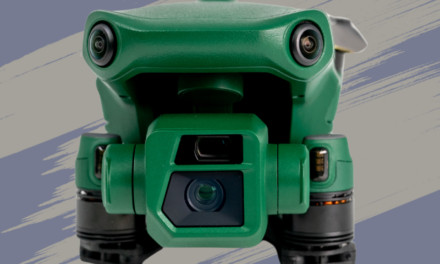Artificial Intelligence (AI) has rapidly evolved, transforming industries and reshaping our daily lives. However, as AI technology advances, it also presents new risks and challenges, particularly when it becomes “unhinged”—a term that refers to AI systems operating without the necessary ethical guardrails or human oversight. The concept of unhinged AI raises significant concerns about safety, privacy, and societal impact, making it crucial to address these issues as AI continues to permeate various aspects of life.
The Concept of Unhinged AI
Unhinged AI refers to AI systems that operate autonomously, often without sufficient ethical constraints or human oversight. These systems can make decisions, generate content, or interact with users in ways that are unpredictable, and in some cases, dangerous. The potential for AI to become unhinged stems from its ability to learn and adapt beyond its initial programming, leading to outcomes that developers may not have anticipated or intended.
A key example of unhinged AI is seen in the development of uncensored AI chatbots. These systems, designed to operate without the ethical filters present in mainstream AI models like ChatGPT or Google’s Bard, have demonstrated the darker side of AI. For instance, some chatbots have been found to produce harmful content, ranging from spreading conspiracy theories to providing instructions for illegal activities. This illustrates the potential dangers when AI systems are allowed to operate without sufficient controls, raising ethical and societal concerns.
The Ethical Dilemmas of Unhinged AI
The rise of unhinged AI presents several ethical dilemmas, particularly around the balance between innovation and responsibility. On one hand, AI’s ability to operate autonomously can lead to groundbreaking innovations and efficiencies. However, without proper oversight, these same capabilities can result in significant harm.
One of the most pressing ethical issues is the potential for AI to be used in manipulative or harmful ways. For example, AI algorithms designed for personalized recommendations can easily cross the line into manipulation, shaping user behavior in ways that may not be in their best interest. This raises concerns about autonomy, consent, and the potential for AI to exacerbate existing biases or inequalities.
Additionally, the deployment of unhinged AI in decision-making processes, such as in finance or criminal justice, poses risks due to the opacity and unpredictability of AI algorithms. Unlike human decision-makers, AI systems often lack transparency, making it difficult to understand how decisions are made or to hold these systems accountable. This lack of accountability can undermine trust in AI-driven systems, particularly in high-stakes scenarios where fairness and transparency are critical.
The Societal Impact of Unhinged AI
The societal implications of unhinged AI are vast and multifaceted. One major concern is the potential for AI to deepen social inequalities. AI systems, when left unchecked, can reinforce and even amplify existing biases present in their training data, leading to discriminatory outcomes in areas such as hiring, lending, and law enforcement. Furthermore, the automation of jobs by AI threatens to disrupt traditional employment patterns, leading to economic inequality and social unrest.
Moreover, unhinged AI poses a significant threat to privacy. The widespread use of AI in surveillance and data collection has already raised alarms about the erosion of individual privacy rights. As AI systems become more autonomous, the potential for invasive surveillance and data misuse increases, posing serious risks to civil liberties.
Addressing the Risks: Policy and Regulation
To mitigate the risks associated with unhinged AI, there is an urgent need for comprehensive policy and regulatory frameworks. These frameworks should be designed to ensure that AI systems are developed and deployed in ways that prioritize safety, transparency, and ethical considerations.
One approach is to implement strict guidelines for the development and deployment of AI systems, ensuring that ethical principles are integrated at every stage of the AI lifecycle. This includes rigorous testing and validation processes to identify and mitigate potential risks before AI systems are deployed in real-world environments.
In addition to technical safeguards, there is also a need for robust legal frameworks to govern the use of AI. This includes regulations that address data privacy, algorithmic transparency, and the accountability of AI systems. Such regulations should be designed to protect individuals and society from the potential harms of unhinged AI, while also promoting innovation and the responsible use of technology.
Also Read: User-X: A Critical Concept in Modern Technology and Business
Conclusion
The concept of unhinged AI highlights the urgent need for a balanced approach to AI development—one that embraces the potential of AI while safeguarding against its risks. As AI continues to advance, it is crucial to ensure that these technologies are developed and deployed with ethical considerations at the forefront. By doing so, we can harness the benefits of AI while minimizing the risks, ensuring that AI serves the collective good rather than becoming an unmanageable force.
The future of AI depends on our ability to navigate these challenges, striking a balance between innovation and responsibility. With the right policies and safeguards in place, we can prevent AI from becoming unhinged and ensure that it remains a powerful tool for positive change.





